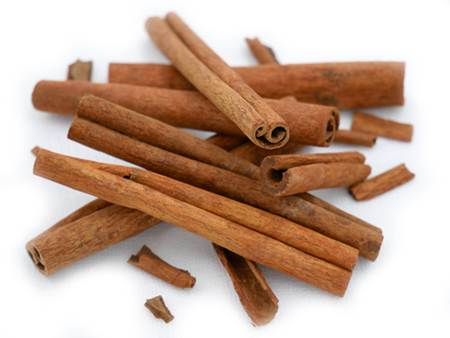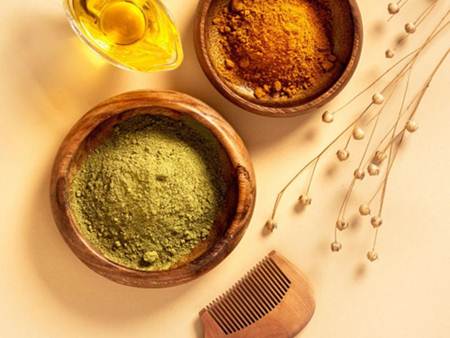Cassia (Cassia obovata, Cinnamomun cassia), also called Chinese cassia or Chinese cinnamon, is a plant often used for its hair care benefits, particularly in natural and traditional hair care practices. It is sometimes referred to as “neutral henna” because it imparts similar conditioning and coloring effects to henna but doesn’t provide the same color change. Here are the benefits and uses of cassia for hair:
Benefits of Cassia for Hair Growth

- Strength and Thickness: Cassia contains some compounds that may help strengthen the hair, promoting thicker-looking hair strands and reducing breakage.
- Conditioning: Cassia coats the hair shaft with a thin film, providing a conditioning and smoothing effect. This can help enhance the manageability and overall texture of the hair.
- Scalp Health: Potential anti-inflammatory properties of cassia could contribute to a healthier scalp, reducing dryness and itchiness.
- Shine Enhancement: Cassia can add a natural shine to the hair, leaving it looking more vibrant and healthier.
- Promotes Hair Growth: While scientific evidence is limited, some individuals believe that the strengthening and improved scalp health effects of cassia may indirectly support healthy hair growth.
Cassia Uses for Hair

- Conditioning Treatment: Cassia also can be used as a natural hair conditioner. After shampooing, apply the natural cassia paste to your hair, leave it on for a period of time, then rinse. This can leave your hair feeling smoother and softer.
- Cassia Hair Masks: Make a hair mask by mixing cassia powder with water or other liquids like yogurt or lemon juice to create a paste. Apply the paste to your hair and leave it on for a specified time (usually thirty minutes to a few hours), then rinse thoroughly.
- Hair Strengthening Pack: Make a hair strengthening hair pack by combining cassia with other natural ingredients like fenugreek powder or amla (Indian gooseberry) powder. This combination may provide improved hair-strengthening benefits.
- Mixing with Henna: Some people mix henna powder eith cassia to achieve a custom color result that is less intense than pure henna. This mixture is often used to achieve strawberry blonde or reddish tones.
- Scalp Treatment: Apply cassia paste to your scalp to alleviate itchiness and scalp dryness. However, if you have a sensitive scalp, conduct a patch test first to ensure it doesn’t cause irritation.
- Natural Shine Enhancer: Combining cassia with ingredients like plain yogurt can help improve the natural shine of your hair.
Before using cassia on your hair, keep the following tips in mind:
- Color Expectation: Remember that cassia doesn’t offer the same color-changing effects as henna. It ususally doesn’t alter the color of dark hair significantly, but it might add a subtle golden hue to lighter hair.
- Patch Test: Do a patch test on a small area of your skin to be sure you don’t have an allergic reaction to cassia.
- Personal Sensitivities: If you have known sensitivities or allergies to plants or natural products, see a dermatologist before using cassia on your hair.
- Quality: Use pure, high-quality cassia powder to ensure you’re getting the best results.
FAQs
How does cassia contribute to healthier hair?
Cassia is thought to improve hair health by acting as a natural conditioner, increasing shine and improving texture. Its potential to provide nourishment and strengthen hair strands can lead to overall improved hair quality and vitality.
Can cassia effectively treat common hair issues?
While individual results may vary, cassia’s natural conditioning properties can help address common hair problems like dullness and dryness, promoting healthier-looking hair and potentially improving texture.
Does cassia treatment effectively combat dandruff issues?
Cassia’s effectiveness in fighting dandruff is uncertain due to limited evidence. Professional advice or sstablished dandruff treatments might be more effective for addressing this concern.
Is cassia a natural alternative for hair coloring?
Yes, cassia is frequently used as a natural alternative for hair coloring. It can impart a subtle yellowish or golden tint to light-colored hair, but it doesn’t provide drastical color changes like synthetic dyes.
Does cassia promote hair growth and thickness?
While cassia is primarily known for its nourishing and conditioning and properties, some individuals believe it can indirectly contribute to hair growth and thickness by improving overall hair health. However, individual results may vary and scientific evidence regarding its impact on hair growth is limited.
Are there any side effects of using cassia on hair?
Using cassia for hair is generally safe, but possible side effects include allergic reactions for some, possible dryness, messy application, yellowish tint on light hair, and hair buildup with excessive use. Performing a patch test is recommended, and seeing a professional for specific concerns is advisable.
Can cassia be combined with other hair treatments?
Absolutely, cassia can be combined with various hair treatments. It pairs well with coconut oil for increased conditioning, with amla for added nourishment, and with henna for diverse color shades. Mixing it with essential oils and yogurt can also provide beneficial effects. Always test blends and ratios for compatibility and desired results.
Can cassia be used to boost hair growth?
While cassia’s conditioning properties might indirectly promote healthier hair growth by enhancing overall hair health, its direct effect on promoting hair growth is not well-established scientifically. People results can vary, and it’s not a guaranteed solution for improving hair growth.
Is cassia an effective natural hair conditioner?
Yes, cassia is considered an effective natural hair conditioner. Properties of cassia can help enhance shine, reduce frizz, and improve hair texture. When applied as a mask or paste, cassia coats the hair shaft, providing a softer and smoother feel.
How to prepare cassia treatment for damaged hair?
For damaged hair, mix warm water with cassia powder to create a thick paste. Add a tablespoon of pure coconut oil and afew drops of your fovourite essential oil. Apply the mixture to damp hair, leave for one or two hours, then rinse thoroughly. Repeat as needed for best results.
Does cassia help in maintaining vibrant hair color?
Cassia can help maintain vibrant hair color, especially for the people with light-colored hair. When mixed with henna, it creates various shades of warm colors, enhancing blonde and red tones. However, its impact on darker hair might be less noticeable. Regular use might contribute to color vibrancy and longevity.
Can cassia replace chemical hair treatments safely?
Cassia can be an alternative to some chemical hair treatments, but it might not completely replace them for all purposes. It can provide subtle color effects and conditioning, but it’s not a direct substitute for treatments like strong chemical treatments or permanent hair dye for specific hair issues. Consider your desired outcomes and see a professional for personalized advice
How often should cassia treatments be applied for hair?
The frequency of cassia treatments depends on your goals and hair’s condition. Usually, using cassia once a month or every four to 6 weeks can be a good starting point. Overuse might cause dryness. Adjust based on how your hair responds. Some individuals find benefit in more often use, while others prefer less.
Can cassia help reverse or prevent grey hair?
Cassia is not known to prevent or reverse grey hair. It doesn’t have compounds required to restore hair pigmentation. Any claims about its effectiveness in this regard are mostly anecdotal, and there is no scientific evidence to support cassia’s ability to address grey hair.
In conclusion, as with any natural hair treatment, individual results may vary. If you have specific hair concerns or you’re unsure, it’s a good idea to consult with a hair care professional before adding cassia into your hair care routine.


